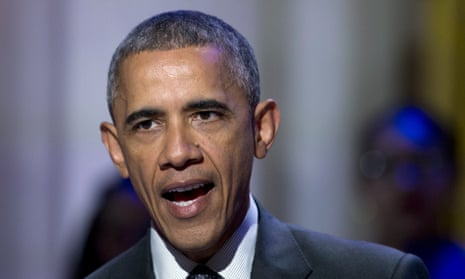Barack Obama’s decision to remove Cuba from the US list of state sponsors of terrorism marks another important step towards the elimination of its pernicious but surprisingly resilient post-cold war concept of the “rogue state”.
In a roll call of supposed infamy that once included almost a dozen countries worldwide, only North Korea still scores As in all four “evil-doer” categories, as defined by the former US president George W Bush. Specifically, it maintains weapons of mass destruction, supports terrorists, abuses human rights and threatens US interests.
Using these criteria, Bashar al-Assad’s Syria also qualifies, although the Damascus regime’s control has been severely undermined by the civil war and consequent loss of power and territory.
By any measure, the defiant but relatively harmless Cuban regime of Fidel Castro and his brother, Raúl, was never in the same league as, say, Iraq under Saddam Hussein, although it transpired the late Iraqi dictator did not have weapons of mass destruction (WMD) either. This discrepancy illustrates how Washington’s designation of rogue states was as much a political and ideological matter as a defence or security issue.
Ronald Reagan kickstarted America’s fixation with recalcitrant second-tier powers that defy America’s will. In 1985, he warned that the US would not tolerate “attacks from outlaw states by the strangest collection of misfits, Looney Tunes, and squalid criminals since the advent of the Third Reich”.
This switch in focus to what Reagan dubbed Murder Inc came despite the ongoing cold war struggle with the Soviet Union, a superpower rivalry that still had six years to run. As if anticipating the next stage of global conflict, Reagan picked on Muammar Gaddafi’s noisily anti-American Libyan regime in 1986, firing cruise missiles at Tripoli in a failed attempt to silence him.
The unilateral Libya attack, in part a punishment for Gaddafi’s involvement in terrorism, set a modern precedent in terms of ignoring international law on loosely defined grounds of self-defence. It also sent a crude message to unfavoured autocrats everywhere about the cost of resisting US hegemony. Dictators such as Egypt’s Hosni Mubarak, and even Hussein for a while in the 1980s, faced no such sanction, as long as they played ball with Washington.
Anthony Lake, Bill Clinton’s national security adviser, formally defined the rogue state concept in 1994, focusing on “recalcitrant and outlaw states that not only choose to remain outside the family [of democratic nations] but also assault its basic values”. Following Reagan’s Looney Tunes list, he nominated North Korea, Iraq, Iran, Libya and Cuba as founding members of the rogue state club.
Conservatives such as John Bolton, a former senior Bush administration official, subsequently widened the definition and varied the terminology. Regimes in Afghanistan, Syria, Burma, the former Yugoslavia, Belarus, Nicaragua, Venezuela, Panama, Sudan and Zimbabwe have all been demonised at various times. Post-2000, rogue states became, officially, “states of concern”, “outlaw states”, “pariah states” and “outposts of tyranny”.
In 2002, smarting from the 9/11 attacks, George W Bush famously coined the phrase “axis of evil” to vilify Iraq, Iran and North Korea. By unexpectedly including Iran in this triumvirate of terror in his State of the Union address, apparently for rhetorical and onomatopoeic purposes, Bush opened the way for Iraq-style armed confrontation with Tehran that Obama’s nuclear diplomacy has only now belatedly averted.
Washington, backed by loyal western allies such as Britain (which adopts the policy if not the phraseology), uses a variety of tools to undermine rogue state foes. Economic sanctions are the norm, backed up by political and diplomatic ostracism and the targeting of key individuals, as in Iran and North Korea (and more recently, in Vladimir Putin’s Russia).
Bombing from the air, as in Yugoslavia, Sudan and Libya twice (in 1986 and 2011), is one option, but only if there is no effective opposition. Cyber warfare and internal destabilisation, as in Iran, are more recent techniques. All-out invasion, which took place in Panama, Kosovo, Afghanistan and Iraq, is never ruled out, although this option has rebounded on its advocates, hence the lack of appetite for meaningful Syrian intervention.
But Obama’s overall less confrontational approach since 2009 points to an end to the longstanding American policy of setting up international bogeymen, then knocking them down. Where US interests and values are challenged, Obama has made increasing use of regional coalitions, supported at one remove by Washington, to handle the sharp end.
This is happening now in Yemen where a Saudi-led coalition is taking the strain, and in northern Nigeria, where Chad and other neighbours are leading the fight against Boko Haram.
Obama’s more conciliatory stance has borne fruit in Cuba, Burma, Afghanistan and Iraq, although in each case the possibility of regression persists. Sudan presents a Cuba-style opportunity, if Obama has enough political capital to reach out. The outcome of his attempted Iran rapprochement is in doubt, but the bilateral relationship has probably permanently changed for the better.
By Washington’s definitions, North Korea and Syria are the last remaining wholly unreformed rogue states. Unless, of course, you share the view of William Blum, Noam Chomsky and others on the political left who argue the US is the biggest rogue state of all.
